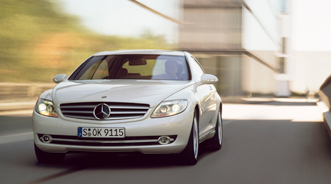Mercedes-Benz Discovers Consumer Confusion About Alternative-Fuel Vehicles

By subscribing, you agree to receive communications from Auto Remarketing and our partners in accordance with our Privacy Policy. We may share your information with select partners and sponsors who may contact you about their products and services. You may unsubscribe at any time.
MONTVALE, N.J. –
Mercedes-Benz USA recently completed a study with Harris Interactive reinforcing its belief that potential buyers remain unsure about alternative fuel vehicles.
The company contends consumers are left asking several questions. Is it a hybrid? Is it electric? Does it take regular gasoline or diesel fuel?
The final result — nearly half of survey participants are holding off on purchasing an AFV.
The automaker’s survey found that nearly one in two adults (48 percent) would be interested in purchasing an alternative-fuel vehicle but are not sure about what type to get — hybrid, electric, or diesel. However only about one in three respondents (35 percent) say they know which types of AFVs are best for various driving situations such as city, suburban, highway.
“In fact, more adults claim to be knowledgeable or very knowledgeable about the causes of the global financial crisis, the difference between good and bad cholesterol and the amount of oil that has spilled into the Gulf of Mexico, than they are about the difference between various types of alternative fuel vehicles,” survey conductors pointed out.
Beyond those findings, the MBUSA/Harris Interactive Survey also revealed:
Subscribe to Auto Remarketing to stay informed and stay ahead.
By subscribing, you agree to receive communications from Auto Remarketing and our partners in accordance with our Privacy Policy. We may share your information with select partners and sponsors who may contact you about their products and services. You may unsubscribe at any time.
—A vast majority of U.S. adults (71 percent) say they are not at all or only somewhat knowledgeable about the difference between various types of alternative fuel vehicles.
—One in four adults (25 percent) is not at all knowledgeable about the difference between various types of alternative fuel vehicles.
—More adults claim to be knowledgeable or very knowledgeable about the causes of the global financial crisis (34 percent), the difference between good and bad cholesterol (45 percent), and the amount of oil that has spilled into the Gulf of Mexico (46 percent) than about the difference among various types of alternative fuel vehicles (29 percent).
—Men are more likely than women to say they are knowledgeable or very knowledgeable (41 percent versus 18 percent, respectively).
—More than half of adults (58 percent) have never considered purchasing an alternative fuel vehicle, while nearly two in five (39 percent) have. Only 3 percent already own one.
This survey was conducted online within the United States by Harris Interactive on behalf of Mercedes-Benz USA in July. It included 2,242 adults ages 18 and older.
Officials explained results were weighted as needed to reflect the composition of the U.S. adult population. They conceded this online survey is not based on a probability sample and therefore no estimate of theoretical sampling error can be calculated.
Sascha Simon, head of advanced product planning at Mercedes-Benz USA, sought to clarify what the automaker is doing in the alternative fuel vehicle market.
“The end game is zero-emissions driving that doesn’t simply transfer the problem,” Simon emphasized. “And, while that is still in the future, each alternative fuel vehicle we introduce is a step in that direction, providing key findings and helping acclimate consumers to new technology.
“Our goal at Mercedes-Benz is to provide a portfolio of options for our customers so they can choose the vehicle that best suits their lifestyle and to further the understanding and, ultimately, the adoption rate for these new technologies,” Simon added.
The automaker has a special section of its website titled “Thinking Green.” It highlights the company’s alternative fuel vehicles, which include Mercedes-Benz’s BlueTEC clean diesel vehicles (E350 BlueTEC, ML350 BlueTEC, GL450 BlueTEC and R350 BlueTEC), hybrid vehicles (S400 Hybrid, ML450 Hybrid and hydrogen electric vehicles (B-Class F-Cell).
The website segment also contains flexible fuel options as well as tips for driving green.


